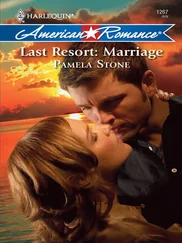“Yes?” Jenny said vaguely. Go away, why don’t you, she thought, and smiled in a perfunctory, discouraging way.
“It’s weird, you know, the effect bad weather has here.” Gerry continued, undiscouraged. “It rains for a couple of days, and everybody’s depressed or angry or both.”
Jenny looked at Gerry, wondering if this applied to him.
“I guess you heard Tiffany’s left,” he added, answering her question.
“No, I didn’t know.”
“Day before yesterday. I figured Wilkie would have told you.”
“He didn’t mention it,” Jenny said, frowning, thinking, He doesn’t mention anything to me anymore, he hardly speaks to me. “Left Key West, you mean?”
“Uh-huh. And left me. It’s, like, over between us.” For a moment, the young hippie poet that Gerald Grass had once been spoke through his middle-aged mouth, with a half-aggressive, half-pathetic roughness.
Don’t tell me about it, Jenny thought. Leave me alone, can’t you see I have my own troubles? But automatically, social rules kicked in. “Oh, I’m sorry to hear that,” she exclaimed, wondering why this was the usual, almost the only possible polite response to news of any separation. Sometimes, as now, the natural reaction might be, Hey, congratulations.
“Yeah, well.”
“I’m sorry,” she repeated, though in fact she wasn’t sorry Tiffany had left, or even surprised. The only thing that surprised her slightly was Gerry’s evident grief. If I was living with Tiffany, Jenny thought, I would want her to leave.
“I guess it had to happen. The relationship was, as she put it, all fucked up.”
“Please, could you be a little quiet?” It was one of the librarians, hissing at them from the end of the stack of books. “Other people are trying to read.”
“I’m sorry,” Jenny apologized again, lowering her voice, and realizing that this time she meant the phrase.
“Anyhow, she cut out day before yesterday,” Gerry said, hardly lowering his.
“But you’re staying on in Key West,” Jenny murmured, moving sideways in an attempt to bring the conversation to an end.
“Yeah. For a while anyhow.”
“Please.” It was the librarian again.
“Aw, hell. Look, would you like to have lunch somewhere?” Gerry whispered. “I have to hang around this end of town until the copy place finishes the manuscript I just gave them.”
“Well—” Jenny began, forming a polite refusal in her mind as she contemplated Gerry’s curly wet hair, his sad, wet expression. But at this moment an old saying of her mother’s came into her mind: Whenever you feel dreadful, dear, the best cure is to do something for someone else. “All right. Why not?”
“Thassa white heron,” the guide in the lead kayak droned in his flat central-Florida twang.
The dumpy little widow sitting behind him, weakly paddling, said nothing. But her niece Barbie, a big, soft-looking young woman in a pink sweatshirt with a picture of a raccoon on it, cried, “Ooh, really?”
Wilkie Walker, paddling the following kayak with Barbie’s eager but awkward assistance, scowled. He was no ornithologist, but he knew quite well that the bird standing in the shallows to their left was not a white heron, but an egret. At any earlier period of his life he would have corrected the error, would have taken satisfaction in correcting it. Now he didn’t give a hoot in hell. All he gave a hoot about was getting through the days and nights until the weather changed and he could take his final swim in the ocean. It wouldn’t happen today, though, he thought. The rain had paused for the moment, but heavy cold whale-colored clouds still sagged low over the Keys.
Wilkie had never been especially attracted to aquatic mammals or plants: according to an amateur astrologer he had once had the misfortune to know, this was explained by the fact that he had no water in his chart. He had come on this trip not out of interest, but to kill time in hell. As cold wet day succeeded cold wet day, his nerves were wearing down, and so was his nerve. Sometimes he thought that if he had to sit in his study for another hour he would end his life in some weak messy way, involving gas or blood.
Yesterday afternoon, unable to stay in the study, he walked into the living room and found Jenny sitting on the sofa, knitting a lump of grayish yarn that, she explained, would one day become a sweater for him—a sweater, of course, that he would never wear. In a few days, after his tragic death, she would set it aside. But probably not forever. Jenny was a practical housewife: she disliked waste, and had never failed to complete any task she had set herself. It was not unlikely, it was even probable, that some day, perhaps months or even years later, she would take up that lump of yarn and complete the project. Someone else, probably their son, Billy, would wear the gray sweater.
But could he be sure it would be Billy? Jenny was still a relatively young woman. After his death she would still be beautiful, graceful, and charming, an admirable cook and housekeeper, a gifted researcher and editor. And she would be well provided for: he had taken care of that. Certainly she would have suitors. It was not unlikely that she would marry again, Wilkie realized—not out of passion, that wasn’t her style—but out of affection, loneliness, and a need for companionship and protection. Jenny was, in many ways, an old-fashioned woman. It was one of the things he loved in her, and one that he had—he admitted—indulged and cultivated. But once he was gone, it would make her vulnerable.
A wave of cold, unfocused jealousy washed over Wilkie, causing him to flub his next stroke with the paddle and send a corresponding, though smaller, wave of cold saltwater back into the kayak and onto Barbie Mumpson. “Sorry,” he muttered, glancing round briefly.
“Aw, that’s okay.”
Wilkie scowled. He realized that he was angry at everything and everybody—even his wife—because they were going to live and he was going to die. Right now, for instance, he was angry at Barbie Mumpson, and at her aunt, and at the tour guide. But most of all he was angry at Perry Jackson. It was Jackson, the caretaker of their rented house, who had inveigled Wilkie into today’s excursion. Jackson’s mother and his cousin Barbie were visiting him, he had explained, and he’d set up a trip for them to the dolphin sanctuary on Sugarloaf Key and then a kayak tour of the mangrove swamps; wouldn’t Wilkie like to go too?
It wasn’t goodwill that had prompted this invitation, Wilkie thought now. What Jackson had wanted was somebody with a car who would drive his boring relatives up the Keys so he wouldn’t have to go himself. And he, Wilkie, had agreed in order to get out of the study for a few hours.
Jackson’s mother, Dorrie, appeared to be a harmless, quiet little woman. But Cousin Barbie had almost immediately revealed herself as a fan of the most gushing sort. “Wilkie Walker!” she had screeched with embarrassed excitement when they met. “You’re Wilkie Walker, I mean you’re really him, I can’t get over it! You’ve been my hero ever since I was a little girl. I’ve read everything you’ve ever written—And now I’m actually going on a nature trip with you, I can’t get over it!”
To break the flow of gush, Wilkie had announced that he didn’t like to talk while he was driving—the last long drive he would probably ever make, he thought. He had also managed to avoid Barbie at the dolphin sanctuary, where they were shown round by one of the staff members whom Perry Jackson knew.
Barbie, of course, had insisted on revealing Wilkie’s identity to their guide, a tall, attractive, athletic-looking woman named Glory Green in jeans and a cotton sweater, with a gray ponytail and no makeup—a familiar type to Wilkie. To Barbie’s evident disappointment, Ms. Green seemed unexcited by this news. Possibly, Wilkie thought, she had never heard of him; or she didn’t approve of what she knew. More and more often, after all, this was the case. Or perhaps it was just her cool, deadpan manner, even when describing the work of the sanctuary.
Читать дальше












